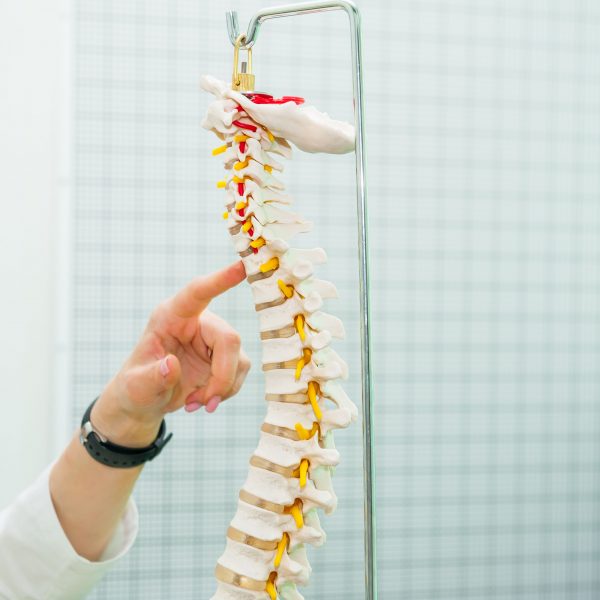Introduction
Maintaining intimacy in relationships after one partner’s incarceration is a complex yet vital aspect of readjustment and reconnection. The bond of intimacy, both emotional and physical, can be severely tested during this challenging phase. This section will explore the nuances of such relationships and the challenges encountered and provide insights into how to nurture and rebuild connections for a healthier, more fulfilling relationship post-incarceration.
Challenges to Intimacy After Incarceration
Couples dealing with the aftermath of incarceration often face significant obstacles in reestablishing intimacy. Firstly, the incarcerated partner may have undergone psychological changes that affect their ability to connect emotionally, leading to feelings of isolation in the relationship. Secondly, the stigma of incarceration can create an external pressure that compounds internal relationship struggles, making it harder to rebuild trust and intimacy. Trust, once broken, takes time and consistent effort to rebuild.
Additionally, low self-esteem, guilt, and shame stemming from the incarceration can cause a reluctance to open up, further inhibiting intimacy growth. It may even result in intimacy anorexia, which describes the partner’s refusal or inability to be emotionally and physically intimate with their loved one. This can be highly damaging to a relationship post-incarceration.
What is Intimacy After Incarceration?

Relationship intimacy is a deep-seated bond encompassing emotional, mental, and physical connections between partners. It’s a closeness and familiarity created through shared experiences, values, vulnerabilities, and mutual respect. This bond is often defined by the 7 levels of intimacy, ranging from superficial to core bonding, including cliches, facts, opinions, hopes and dreams, feelings, faults, fears, failures, and mutual needs.
In the context of post-incarceration, intimacy can become distorted or disrupted. The incarcerated partner’s time away can create a rift, with each partner having experienced vastly different realities during incarceration. The outside partner might have struggled with feelings of loneliness and abandonment, while the incarcerated partner could have dealt with issues of survival, fear, and loss of autonomy. These disparate experiences can result in a communication gap, making it difficult to reconnect on deeper, more intimate levels post-incarceration.
Moreover, the incarcerated partner may face self-esteem issues, guilt, or shame, leading to reluctance to open up to their partner. This inhibits the growth of emotional intimacy, a vital component of the seven levels of intimacy. Additionally, the stigma associated with incarceration can cause external pressures, further straining the relationship and making it harder to rebuild trust and intimacy. Despite these challenges, rebuilding and nurturing the bond of intimacy post-incarceration with understanding, patience, and consistent effort is possible.
Ways To Keep Intimacy Alive After Incarceration
Despite the challenges of incarceration, couples can still keep their intimacy alive. Here are the ways they can maintain and deepen the bond of intimacy post-incarceration:
Communication:

Open and honest communication forms the backbone of maintaining and enhancing intimacy after incarceration. Partners must have sincere dialogues about their feelings, experiences, fears, and expectations. The incarcerated partner should be encouraged to express any guilt, shame, or fear they may harbor. In contrast, the non-incarcerated partner should feel comfortable communicating their feelings of loneliness, anger, or abandonment experienced during their partner’s absence. This open sharing of experiences and emotions fosters understanding, paving the way for empathy. Furthermore, honest communication about personal needs and desires can help restore physical intimacy, leading to a holistic restoration of the relationship.
Navigating communication post-incarceration can be challenging, but several methods exist to maintain regular contact and foster emotional intimacy. Here are a few tips:
Letters:
Exchanging letters can serve as a therapeutic outlet and a potent tool for rebuilding intimacy. Here, penmanship can convey emotions and thoughts that might be difficult to express in person.
- Set aside a specific time each week to write to each other, creating a sense of anticipation and continuity.
- Use letters to express deeper feelings and thoughts that might be difficult to articulate in verbal conversations.
- Try to be as honest and open as possible. Share your fears, hopes, dreams, and everyday experiences. This will help your partner understand your perspective and feelings better.
Phone Calls:
Phone calls provide real-time connection, allowing partners to hear each other’s voices, which can be comforting and create a sense of closeness.
- Try to schedule regular phone calls, even if they can’t be for extended periods. Consistency can help establish a sense of routine and reliability.
- Use these calls to discuss your day, share good news, or hear each other’s voices.
- Be open and empathetic in your conversations. Understanding and acknowledging your partner’s feelings and experiences can foster emotional intimacy.
Video Chats:
With technological advancements, video chats are often feasible and offer a more personal way of communicating.
- Schedule regular video chats, even if short, just to see each other’s faces. This visual contact can significantly enhance the sense of connection.
- Engage in shared activities during video chats, like watching a movie together or jointly cooking a meal, to create shared experiences.
- Use video chats as an opportunity to communicate not just verbally but also non-verbally. Facial expressions and gestures can convey much about a person’s emotional state and help partners understand each other better.
By maintaining regular and open communication using these methods, couples can work towards rebuilding and nurturing their emotional intimacy after incarceration.
Emotional Support:

Emotional support plays a crucial role in rebuilding intimacy post-incarceration. Both partners, during and after incarceration, are likely to experience a range of emotions such as fear, anger, guilt, loneliness, and abandonment. For the incarcerated partner, having a reliable emotional support system can alleviate feelings of isolation and assist in managing the psychological impacts of incarceration. It can help them cope with the harsh realities of prison life and the struggle to reintegrate into society post-release.
On the other hand, the non-incarcerated partner, often dealing with feelings of loneliness and abandonment, may also be grappling with societal stigma and pressures. Emotional support for them is equally critical to managing these feelings and fostering resilience during this trying period.
Emotional support can manifest in various forms. It might be a listening ear, encouragement, affirmations of love and commitment, or just being there in moments of vulnerability. Emotional support can encourage open communication about feelings, fears, and hopes, fostering a stronger emotional bond and deeper understanding between partners.
Both partners must prioritize providing emotional support to each other, as it not only aids in healing past wounds but also paves the way for rebuilding trust and intimacy in their relationship post-incarceration. Engaging in supportive dialogues about guilt, shame, loneliness, fear, and expectations can help reconcile with the past, deal with the present, and plan for a future together. Thus, emotional support is pivotal in keeping intimacy alive after incarceration.
Building Trust:
Trust forms the bedrock of any relationship and is particularly vital in reassurance. The incarceration process often leads to breaches of trust, as the incarcerated individual may have committed actions that led to their imprisonment, causing immense hurt and disappointment to their partner. Post-incarceration, these feelings of betrayal may linger, causing a significant hurdle to reestablishing intimacy.
Rebuilding trust post-incarceration is no easy feat and requires consistent effort, patience, and understanding from both individuals. The key to this is open and honest communication. Both parties must express their feelings, insecurities, and expectations clearly. The incarcerated partner should make a conscious effort to demonstrate their commitment to change and make amends. This could include being transparent about their actions during and after incarceration, showing empathy towards their partner’s feelings, and offering consistent reassurance.
The partner on the outside also plays a critical role in this process. They need to express their feelings of hurt and betrayal and articulate what actions they need to see to begin rebuilding trust. This could include seeing consistent behavior changes, receiving honest answers to their questions, or sharing decision-making. It’s equally crucial for them to be open to the possibility of forgiveness and healing, understanding that the process is gradual and may involve setbacks.
While challenging, rebuilding trust post-incarceration is possible and is key to nurturing and sustaining intimacy in such relationships.
Shared Activities:
Engaging in shared activities is a significant way to foster intimacy and connection, even from a distance. Shared experiences create a common ground, a sense of togetherness, and a mutual understanding that can bridge the physical gap created by incarceration. Activities can range from reading and discussing the same book, watching a movie simultaneously, or even attempting to learn a new skill together.
These shared experiences provide opportunities to understand each other’s perspectives, likes, and dislikes and to engage in meaningful conversations. They also create a sense of anticipation and excitement at the prospect of doing something together, fostering a sense of normalcy and continuity despite the trying circumstances.
In the context of incarceration, these activities not only distract from the harsh reality of separation but also serve as a reminder of the bond the couple shares. They can help maintain a semblance of the shared life that the couple had before incarceration and serve as a beacon of hope for a shared future post-incarceration. Thus, shared activities are crucial in keeping intimacy alive and thriving despite physical separation.
Setting Goals:
Setting common goals and planning for the future is a cornerstone in rebuilding intimacy after incarceration. The process of incarceration can often lead to a sense of disconnection and uncertainty about the future, making it essential for couples to set goals and envision a shared future collaboratively. This provides a sense of direction and binds couples together in a mutual pursuit, fostering a deeper emotional connection.
Joint goal-setting promotes open communication, as partners need to discuss their aspirations, fears, and expectations. This process allows partners to better understand each other’s perspectives, facilitating empathy and mutual respect. Additionally, it encourages accountability and commitment, as both partners are invested in achieving these goals.
Goals could be as simple as planning for a shared activity or as complex as making career or financial plans. They could also involve addressing issues within the relationship, such as improving communication or rebuilding trust. Regardless of their nature, setting and working towards these goals together can be a fulfilling and bonding experience.
Moreover, planning for the future can induce a sense of stability and optimism. It creates a shared vision that can serve as a beacon of hope during challenging times, reminding couples of their shared commitment and the potential for a better future post-incarceration. Therefore, setting joint goals and planning for the future is pivotal in nurturing and maintaining intimacy after incarceration.
Professional Help:
Seeking professional help in therapy or counseling is highly recommended for rebuilding intimacy after incarceration. Therapists and counselors are trained to help individuals navigate their feelings, manage stress, and address relationship issues effectively. They can provide useful techniques and strategies to improve communication, rebuild trust, and address emotional challenges.
Therapy or counseling can be particularly beneficial for the incarcerated partner, who may be grappling with guilt, shame, or fear associated with their incarceration. A professional can provide the necessary support to help them process these emotions, understand their impact on the relationship, and devise healthy coping strategies.
For the non-incarcerated partner, therapy can offer a safe space to express anger, loneliness, or abandonment and learn how to manage these emotions effectively. Counselors can also assist them in dealing with societal stigma and pressures associated with having a partner in prison.
Couples therapy can be an invaluable tool for both partners, providing a neutral environment to openly discuss their feelings and issues and facilitating better understanding and empathy. This can significantly assist in rebuilding the emotional connection and intimacy.
Professional help not only aids in healing past wounds but also paves the way for a better and healthier future together. So, don’t hesitate to seek help when needed. It’s a sign of strength and commitment to the relationship. Remember, it’s okay to ask for help, and trained professionals are ready to provide the support you need.
Self-Care:
Prioritizing self-care is vital for maintaining emotional well-being and fostering intimacy in a relationship, especially when dealing with a partner’s incarceration. Caring for one’s physical, emotional, and mental health allows individuals to be more present and available in their relationships. When partners are in a good state of mind, they are better equipped to provide each other support, understanding, and care, enhancing their intimate connection.
Self-care can encompass a variety of activities and practices, from maintaining a healthy diet and regular exercise routine to engaging in mindfulness practices like meditation or yoga. It also incorporates emotional self-care, such as expressing emotions openly, relaxing and unwinding, and nurturing personal interests and hobbies.
Moreover, it involves setting and respecting personal boundaries, which are crucial for maintaining a sense of self and personal identity in a relationship. Establishing boundaries can help prevent feelings of resentment or being overwhelmed, which can harm intimacy.
Remember, taking care of oneself is not selfish; it’s necessary. Only when you are healthy and at peace with yourself can you truly engage in a deep, intimate relationship with another person. Therefore, self-care should be a non-negotiable aspect of maintaining and enhancing intimacy after incarceration.
Conclusion
In conclusion, maintaining and rebuilding intimacy after incarceration is a unique challenge that carries emotional, psychological, and societal complexities. However, there are several strategies that couples can adopt to address these issues. Open and regular communication, often aided by technologies like video chats, is a crucial building block in restoring emotional intimacy. Emotional support is vital, as both partners are likely to experience a range of difficult emotions, and it fosters a stronger emotional bond. Trust is the cornerstone of any relationship, and restoring it post-incarceration requires effort, patience, and understanding. Couples can engage in shared activities to foster a sense of togetherness, and setting joint goals can provide direction and foster a deeper emotional connection. Professional help, such as therapy or counseling, can provide invaluable support, offering techniques and strategies to improve communication, rebuild trust, and address emotional challenges. Lastly, self-care is vital for maintaining emotional well-being and enhancing the intimate connection within a relationship. Despite the challenges, with commitment and effort, it’s entirely possible to nurture and sustain intimacy after incarceration.






